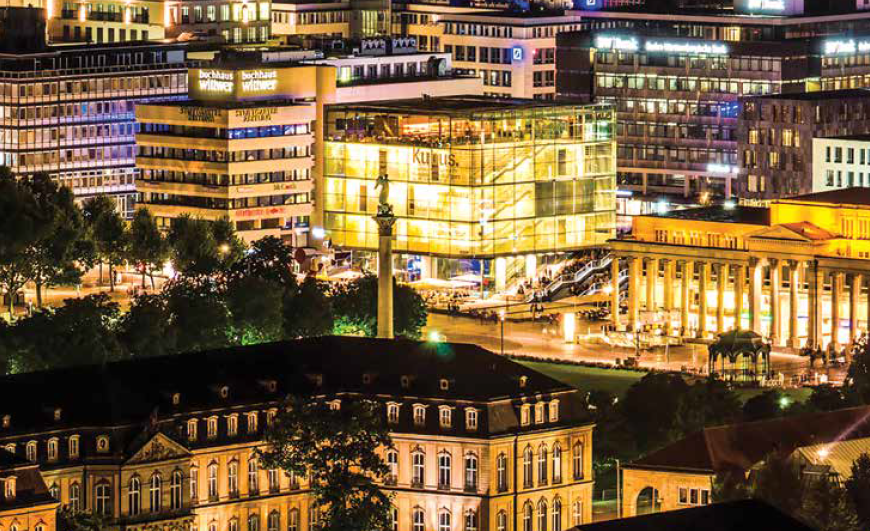The external trade between Germany and Serbia has had a forward trajectory year-on-year. The progress has not only been quantitative but qualitative too, as seen in long-term investments by Germany, transferring advanced technologies to Serbia and involving more Serbian companies in the supply chains of German multinational companies

Serbia is Germany’s most important partner in the Western Balkans. At the same time, Germany is also Serbia’s largest trading partner, individually by country, both in terms of import and export, replacing Italy in that position. It is also the fifth-largest foreign investor and the most important bilateral donor of Serbia. In 2019, Germany was Serbia’s No 1 partner in terms of total external trade (exports and imports). The share of Serbia’s trade with Germany stood at 12.78% of our total trade with the world, while the share of Serbian exports to Germany stood at 2.62% Serbia’s total exports, and imports from Germany made a 12.9% of Serbia’s total imports.
In 2019, the value of total trade exceeded 5 billion euro and amounted to exactly 5,292.90 million euro, which is an 8.4% increase over 2018. Our exports exceeded 2 billion euro and reached 2.21 billion euro, with an increase of 13.9%. Imports increased by 4.7% to amount to 3.08 billion euro. Serbia recorded a deficit of 867.5 million euro in trading with Germany, which is the third-largest external trade deficit after the one recorded in trading with China and Russia. The import to export ratio amounted to 71.8% and although it is very high, the gap is getting smaller.
German companies currently employ about 90,000 people in the Western Balkan region, while German investments resulted in the creation of 60,000 new jobs in 400 companies. If we count in Serbian companies which are suppliers of these companies, according to the estimates of the Chamber of Commerce of Serbia, would double. In addition to the growing external trade, which value exceeded the figure of 5 billion euro, the cooperation between the two countries is also characterized by the commitment of German companies to their operations in the domestic market and the long-term investment plans. German companies operating in Serbia are increasingly moving their high-tech facilities and finding suppliers here. At the moment, German companies have 150 suppliers from the Western Balkans, providing services to German companies. One third comes from Serbia. Such trends are also evident in the analysis of commodity trade. In the structure of exports to Germany, and in terms of level of processing, 84.1% of all the products are high-processed ones. In 2019, the export of industrial products accounted for 90.3% of Serbia’s total exports, while agricultural and food products accounted for 9.7% of our exports. Also, most of our imports are industrial products (94.1%), while 5.9% of our imports are food products.
Serbia mostly imported from Germany the following – ignition wire sets, electric motor and generator parts, aggregates or converters, alternators, direct current motors and frozen raspberries. We also imported refined copper wire, retail medicine, used cars, DC motors and helicopters. The reasons for such positive trends are found, first and foremost, in the proactive work carried out by the state and the good experiences of German companies operating here. According to the results of a regular survey conducted by the German-Serbian Chamber of Commerce (AHK) among its members, they are becoming increasingly satisfied with their market position and prospective development in Serbia. German and Serbian companies, members of AHK, positively assessed the economic climate in Serbia, expressed positive expectations regarding their respective businesses and their satisfaction with the labour market. 88 per cent of the surveyed companies would invest again in Serbia.
German investors find IT, circular economy and green technologies quite interesting. Also, the relevant data shows that parts of Serbia, with a good supply of workforce, are still very interesting to investors in terms of opening of new factories that require higher labour intensity. While there is no doubt that both Germany and Serbia are looking at continued cooperation with optimism, some problems remain. For example, German companies continue to give the worst assessment in areas such as the fight against corruption and crime, legal certainty, transparency in public tenders, the tax system and tax administration, and the efficiency of public administration. In contrast, and despite often experiencing labour shortages, German-Serbian companies point out the productivity and motivation of employees, their qualifications and the quality of academic education as positive. Last year, for the first time, the quality of dual education was listed as one of the factors AHK member-companies were pleased with.